Industrial generator rental is crucial for maintaining power during outages or in off-grid locations. As demand for eco-friendly power solutions grows, incorporating sustainable practices in the rental and operation of industrial generators, including those from Multiquip, is essential. This guide explores sustainable practices in generator rentals, highlighting their environmental, economic, and social benefits.
Benefits of Sustainable Industrial Generator Rentals
Implementing sustainable practices in industrial generator rentals offers numerous advantages. Companies can significantly reduce their environmental impact by selecting a rental generator that uses low-emission and renewable energy sources. Regular maintenance also improves the reliability of rental generators, ensuring they operate efficiently. Energy-efficient generators consume less fuel, which leads to lower operating costs.
Sustainable practices enhance a company’s reputation and demonstrate a commitment to corporate social responsibility. Putting these practices into action brings additional benefits, such as:
- A reduced carbon footprint
- Decreased pollution
- Conservation of natural resources
- Lower operational costs
- The opportunity to use renewable fuel sources
- An enhanced corporate reputation
- Aligning corporate strategy with global sustainability goals
By integrating these practices, companies can save costs, improve their reputation, and contribute to a healthier environment. Sustainable generator rentals benefit both businesses and the planet.
Sustainability in generator rentals can reduce environmental impact while ensuring efficiency. For tips on optimizing your power setup, check out our guide on protecting your business by matching industrial generators to your power requirements.
Green Technologies and Energy Efficiency
Implementing green technologies and energy-efficient practices are essential for sustainable generator rentals. These advancements reduce environmental impact and improve operational efficiency. Some of the key technologies include:
- Renewable energy sources: Incorporating renewable energy sources reduces reliance on fossil fuels.
- Hybrid generators and battery storage: These advanced generators combine traditional fuels with renewable sources for efficiency and reliability.
- High-efficiency generators: Advanced efficiency maximizes output while minimizing fuel consumption.
- Load management techniques: This feature ensures optimal operation by balancing power demand and supply.
Adopting these green technologies and energy-efficient practices will result in more sustainable generator rentals, offering significant economic and environmental benefits. Operational costs will be reduced, and the ecological footprint of generator use will be minimized, promoting a more sustainable future.
Emissions Reduction Strategies
Reducing emissions is a critical aspect of sustainable generator rentals. Employing various technologies and selecting low-emission models can significantly decrease the environmental impact of generator use. These strategies are essential for meeting environmental regulations and promoting a healthier ecosystem.
Low-emission generators reduce the overall environmental impact of generator usage. These generators are equipped with advanced technologies to minimize harmful emissions. Technologies like Diesel Particulate Filters (DPFs) and Selective Catalytic Reduction (SCR) systems also reduce generator emissions. DPFs trap soot and particulate matter from diesel exhaust, while SCR systems convert nitrogen oxides (NOx) into harmless nitrogen and water.
Fuel Alternatives and Management
Fuel alternatives and effective management practices can significantly enhance the sustainability of generator rentals. Adopting diverse fuel sources and optimizing fuel usage can dramatically reduce environmental impact and improve operational efficiency.
Today’s available fuel alternatives include:
- Biodiesel: A renewable fuel from vegetable oils or animal fats that burns cleaner than traditional diesel, lowering greenhouse gas emissions.
- Natural Gas: Produces fewer pollutants and greenhouse gasses, making it a cost-effective and eco-friendly alternative.
- Hydrogen: Emits only water vapor, making it one of the cleanest energy sources available and ideal for sustainable energy solutions.
Effective fuel management involves:
- Monitoring Fuel Consumption: Tracking and analyzing fuel use to ensure efficiency and identify areas for conservation.
- Maintaining High Fuel Quality: Ensuring fuel is free from contaminants to prevent engine wear, reduce emissions, and enhance performance.
- Using Sustainable Fuels: Incorporating biodiesel and renewable diesel lowers environmental impact and promotes sustainability.
By adopting these fuel alternatives and management practices, generator rentals can become significantly more sustainable, contributing to a greener and more efficient future. Understanding fuel options for industrial generators can further guide companies in making informed decisions about sustainable practices.
Waste Management and Recycling
Effective waste management and recycling practices are critical for sustainability in generator rentals. Proper disposal and recycling efforts can significantly reduce environmental impact and promote resource conservation.
Proper disposal of waste materials is essential to prevent environmental contamination. This includes:
- Used oil and filters: Proper disposal of these items prevents harmful substances from polluting the environment.
- Recycling components: Reduce waste and conserve resources by following recycling protocols for generator components.
- Handling hazardous materials: Ensure safety and regulatory compliance by ensuring that hazardous byproducts are disposed of properly.
Implementing these practices helps manage hazardous waste risks and supports a sustainable approach to generator rentals.
Sustainable Supply Chain Practices
Promoting sustainability throughout the supply chain can further enhance the eco-friendliness of generator rentals. This involves adopting green procurement policies, forming eco-friendly partnerships, and conducting life cycle analyses.
Green Procurement and Partnerships
Adopting green procurement policies involves selecting suppliers and products that meet environmental standards. Collaborating with eco-friendly suppliers ensures that sustainable practices are upheld from production to rental.
Life Cycle Analysis
Conducting life cycle analysis helps identify areas for improvement in the sustainability of generator rentals. By assessing the entire lifecycle of products, from manufacturing to disposal, companies can pinpoint opportunities for sustainability enhancements and implement more eco-friendly practices throughout the supply chain.
This comprehensive evaluation ensures a more sustainable and responsible approach to generator rentals. Understanding how emergency generator rentals can keep your business running during critical times is crucial for comprehensive planning.
Regulatory Compliance and Certifications
Ensuring compliance with environmental regulations and obtaining relevant certifications is crucial for sustainable generator rentals. Adhering to local and international rules guarantees that generator rentals are conducted responsibly, minimizing ecological impact.
Certifications like ISO 14001 and LEED demonstrate a company’s environmental management and sustainability commitment. These certifications assure stakeholders that the company follows best practices in environmental stewardship, reinforcing their dedication to sustainability.
Customer Education and Engagement
Educating and engaging customers on sustainable practices can amplify the impact of eco-friendly generator rentals.
- Providing information and training: Educating customers on the benefits and implementation of sustainable practices encourages widespread adoption. Offering training programs for efficient generator use helps customers optimize performance and reduce environmental impact.
- Encouraging sustainable practices: Promoting sustainable practices among customers fosters a culture of sustainability and enhances the overall impact.
Multiquip Generators and Sustainability
Multiquip generators are at the forefront of sustainable industrial generator rentals. These generators are designed to be energy-efficient, reliable, and eco-friendly. Multiquip offers a range of models that integrate the latest green technologies and fuel management systems to reduce emissions and improve fuel efficiency. By choosing Multiquip generators, companies can enhance their sustainability efforts and ensure compliance with environmental regulations.
Future Trends in Sustainable Generator Rentals
The future of generator rentals is geared toward more efficient and eco-friendly solutions. As technology advances and the demand for sustainable practices grows, the generator rental industry is poised for significant innovation and development.
Advances in Green Technology
- Innovations in renewable energy: Continuous advancements in solar, wind, and hybrid energy systems make generators more efficient and eco-friendly.
- Improved emission control: New emission control technologies, such as advanced DPFs and SCR systems, are reducing the environmental impact of generator use.
- Energy storage solutions: Integrating advanced battery storage solutions enhances energy management and reduces fuel consumption.
Increasing Demand and Industry Growth
- Regulatory pressures: Stricter environmental regulations push the industry to adopt more sustainable practices.
- Environmental awareness: Growing awareness among businesses and consumers about the environmental impact of traditional generators is driving demand for sustainable options.
- Market expansion: Industry experts predict substantial growth in the generator rental market due to the increased focus on sustainability.
The Path to Eco-Friendly Generator Rentals
Enhancing sustainability in industrial generator rentals is essential for environmental and business benefits. By adopting eco-friendly technologies and practices, companies can significantly reduce their carbon footprint, lower long-term operational costs, and strengthen their corporate reputation.
- Reducing Environmental Impact: Minimizes carbon footprint.
- Lowering Operational Costs: Reduces expenses.
- Enhancing Corporate Reputation: Builds stakeholder trust.
By integrating these practices and staying updated with technological advancements, companies can lead in sustainability and positively impact the environment and operations.



